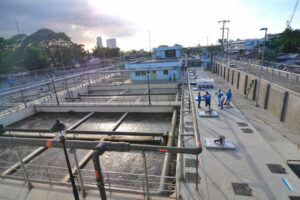Vape tax not deterring users — House think tank

LEGISLATORS may need to reassess tax rates on vapes and other e-cigarette products, which are rising in popularity due to their low cost, according to a House of Representatives think-tank.
The Congressional Policy and Budget Research Department (CPBRD) said, however, that higher tax rates could spur the growth of an illicit vape market.
“The continued rise in e-cigarette use… raises concerns about the effectiveness of the current tax policy in curbing e-cigarette consumption. One factor that possibly contributes to this trend is the existing tax disparity between conventional cigarettes and e-cigarettes,” the report’s authors Rutcher M. Lacaza and Edrei Y. Udaundo, wrote.
“Excessively high taxes could push consumers towards the illicit market, leading to tax evasion and potential safety risks associated with unregulated products,” they added.
The Philippines imposes an excise tax of P66.15 per pack of 20 cigarettes, while vape products are taxed at P57.33 per mL for salt nicotine and P66.15 per mL for classic nicotine juices, according to the Bureau of Internal Revenue (BIR).
Vapes are taxed less compared to regular cigarettes, the CPBRD said, with excise taxes making up just 35% to 60% of their floor price, compared to 80% for cigarettes.
“This lower tax share, combined with the aggressive marketing campaigns targeting young consumers, has made e-cigarettes increasingly accessible,” the think-tank said.
A bill seeking to harmonize the tax rates of all tobacco products was approved by the House in early February, setting a P41 tax per package of heated tobacco products and harmonizing the tax on vapes and cigarettes at P66.15. The proposed taxes would increase by 2% in every even-numbered year starting 2026 and 4% in every odd-numbered year starting 2027.
More consumers in the Philippines were aware and were using vape and e-cigarette products in 2021 than in 2015 despite the signing of Republic Act No. 11346, which hiked excise tax rates on smoking products, the CPBRD said, citing the Global Adult Tobacco Survey.
“This trend is particularly pronounced among young adults, males, those with higher education, and current smokers, especially those intending to quit. The significant increase in e-cigarette use among young adults (15-24 years old) is a major public health concern,” the think tank said.
The government should look into targeted tobacco education campaigns for the young and regulate the online sale of vapes to curb their use, the CPBRD said.
Health authorities should also consider imprinting textual and graphic health warnings on vape packages to further discourage e-cigarette use, it added.
“Policymakers must balance fiscal and public health goals, adapting to protect vulnerable groups as the e-cigarette market evolves.” — Kenneth Christiane L. Basilio




